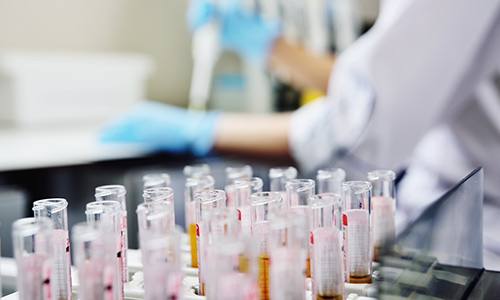Family history health questions you should be asking
- Overview
- Full article
Your genes are like a road map for every cell in your body, directing their growth and development. They influence many traits, from eye and hair colour to your risk of developing certain medical conditions.
In some cases, if you’ve inherited a specific altered (mutated) version of a particular gene from one or both parents, this can cause a medical condition to occur.
Medical conditions caused by inherited faulty genes are much less common than medical conditions caused by other factors, such as exposure to tobacco smoke, radiation, ultraviolet radiation from the sun and some substances in food and chemicals in our environment. For example, genetic specialists estimate that between three and ten in every 100 cancers (3 to 10%) diagnosed are linked to an inherited faulty gene1. That said, knowledge about your family history can be helpful.
Who and what should you ask about your family health history?

Before speaking to your doctor, it can be useful to talk to relatives about their health. It's most important to talk to your parents, brothers and sisters. But you might also want to talk to your grandparents, aunts and uncles, nieces and nephews, half-brothers and half-sisters, and cousins.
Assessing your risk of inherited medical conditions is complicated and exploring your family history can make for daunting research. Detailed individual case histories aren’t necessary but looking for trends amongst relatives can be helpful. Do you have several relatives who suffered from issues at a young age? These can include:
- Long-term health problems like heart disease, diabetes, kidney disease, bleeding disorder, or lung disease
- Genetic cancers that can run in families such as bowel cancer, breast cancer, kidney cancer melanoma, ovarian cancer, pancreatic cancer, prostate cancer, eye cancer (retinoblastoma) thyroid cancer or womb (endometrial cancer)
- Health issues relating to high blood pressure, high cholesterol, or asthma
- Other serious illnesses, such as stroke, Alzheimer's/dementia, genetic birth disorder, or osteoporosis.
If so, it can be useful to ask:
- How old were they when these medical conditions were diagnosed?
- Are their medical conditions under control? How are/were they treated?
You could also ask questions about other relatives, such as:
- What countries did our relatives come from?
- Did our late relatives have health problems? What were the issues and when were they diagnosed?
- How old were they when they died?
- What were the reasons for their deaths?
If you think you may have a strong family history of certain medical conditions, speak to your GP, who will explore this with you and may refer you to a genetics clinic.
Testing for genetic conditions and disorders

Genetic testing can check whether you're carrying a genetic mutation that causes a medical condition or disorder. Testing usually involves taking a blood or tissue sample and analysing the DNA in your cells.
If a known gene fault is identified, a genetic counsellor will be able to explain how this affects your risk in comparison to the general population.
Some inherited genes are more likely to cause medical conditions than others. As well as a gene fault, many other factors need to be in place for the condition to develop. Without these, it’s possible for the medical condition to skip generations. For example, despite genetics, we know that a healthy lifestyle assists in controlling the potential risks for cancer and that healthy eating, exercise, low alcohol intake and being a non-smoker all help.
To reduce your risk of developing cancer or other genetically inherited medical conditions, genetic counsellors may suggest screening, monitoring or treatment. Every day, scientists are undertaking groundbreaking research into genetics and cancer, and screening facilities are always progressing.
Nuffield Health's Pathology Direct service provides high-quality, affordable genetic testing for hereditary conditions including cancer and high cholesterol. Testing is quick and pain free, requiring just a saliva sample. Pre-test consultation and post-test counselling, where necessary, are provided by an extensive network of clinical geneticists.
1 Source: National Cancer Institute, Gastroenterology, JAMA Oncology, Science, Journal of the National Cancer Institute, American Association for Cancer Research, European Society of Human Genetics, Familial Cancer, Clinical Genetics.
Last updated Wednesday 27 November 2019
First published on Wednesday 17 April 2019

